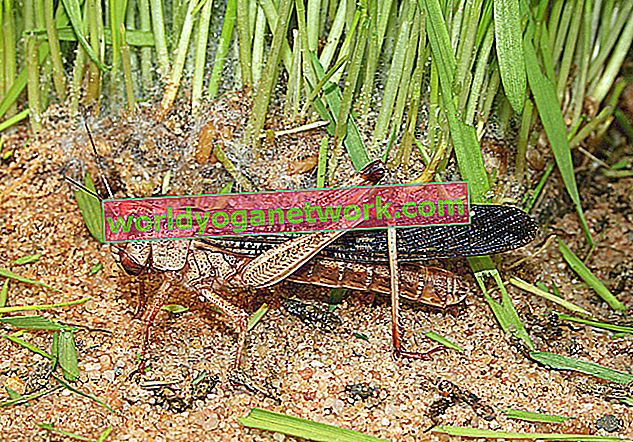
"When I first came to this country," the Tibetan lama recounted, "I thought, 'This is the way children should be raised all over the world.' So careful, so loving, so much attention." In the middle of his Dharma talk, he was suddenly speaking quite personally. He had been explaining some of the finer points of what he called "naked awareness," the mind's capacity to see deeply into its own essence.
We were on retreat in Litchfield, Connecticut—about 70 of us, practicing together in silence, learning an ancient meditative yoga called the Great Perfection. But like a sailboat tacking to grab a fresh breeze, the lama was now heading in a different direction. He screwed up his face, mimicking the expression of a doting parent, and lapsed into an uncanny imitation: "Here, honey, just try a bite of this. Are you okay with that, sweetie?" Leaning forward, with his shoulders hunched over an imaginary child, he looked for a moment like a mother bird hovering over her nest.
Startled out of our meditative reveries by the lama's impersonation, our attention quickened. "It's not like in Nepal or Tibet," he continued. "If a child does something wrong, he just gets slapped. Leave him in the corner crying; it doesn't matter. Treated that way, sometimes the child gets a little dull, stops caring about things. That is not so good. But then I found out, here everyone hates their parents. It's so difficult. Relationships are so difficult. In Nepal, this doesn't happen. I can't understand this very well."
As quickly as he brought the subject up, he dropped it again. I found myself wondering if I had even heard him correctly. Usually Tibetan teachers talk only about how special mothers are, about how their kindnesses allow us, as totally helpless infants, to survive, over and over again. It is the kind of teaching that we in the West often find refreshing, if slightly intimidating, because we have ignored those basic aspects of the mother-child relationship in favor of more conflicted ones. In an infinite series of multiple lifetimes, the traditional Tibetan argument runs, all beings have in fact been our mothers, and we can cultivate kindness toward them by imagining their prior sacrifices for us. But here was a lama who, however briefly, acknowledged our more difficult relationships with our current parents. He seemed as startled by our difficulties as I had been on first hearing of the meditation wherein all beings are considered our mothers. I was intrigued by his candor and disappointed that he did not take the discussion further.
But a day or two later in another talk, the lama, 35-year-old Drubwang Tsoknyi Rinpoche of the Drukpa Kagyu and Nyingpa lineages of Tibetan Buddhism, raised the subject again. In virtually the same language, he expressed astonishment at the level of anger that his Western students seemed to harbor against their parents. Clearly it was bothering him. That night I left a note for the course manager telling him that, unless somebody else volunteered, I could explain to the lama why Westerners hate their parents. The next morning, someone tapped me on the shoulder after meditation and told me that the lama would meet with me.
Refreshingly at ease with himself, Tsoknyi Rinpoche was friendly and personable. He brushed aside my efforts at formality and indicated that he was ready to talk right away. We spoke without his interpreter present, so our conversation was restricted to the essentials.
"All that attention comes with a lot of expectations," I began. "Western parents don't feel that their children already are who they are—they feel that it is their job to make them who they should be. Children feel this as a burden."
"A pressure," the lama replied.
"A pressure. And they develop an armor to guard against it. The anger is part of that armor." I thought of a patient of mine as we talked, a young woman who always felt that her parents, in her words, "had a quota on me." She had the feeling that they just couldn't take her, that she was too much for them, too imposing, perhaps even dangerous, and at the same time a disappointment, not enough of the right stuff. This woman withdrew from her mother and father, but she withdrew from other people in a more generalized way and suffered from lack of confidence and isolation as a result. I closed one fist and covered it with my other hand, holding both up to the lama. The closed fist was like the armored child, and the hand covering it, the parental expectations. "All the energy is going into the resistance," I explained. "But inside, the child feels empty. Not like in Buddhism, where emptiness connotes something akin to freedom."
"Hollow," said the lama. He understood.
"In the psychotherapy world, we call that armor 'false self.' A child creates a false self to deal with excessive expectations or with early abandonment—too much parental pressure or too little. The problem with this scenario is that children often lose touch with who they are on the inside. After a while, they only know the armor: the anger, fear, or emptiness. They have a yearning to be known, or found, or discovered, but no means to make it happen. It brings people to places like this." I gestured to indicate the retreat facility.
"Maybe it's not such a bad thing, then!" he smiled.
I knew that, in a certain way, he was right. The spiritual renaissance of our time is in many ways fueled by the disappointments of privilege. Ambitious, overprotective parents produce capable children with a yearning for something other than more accomplishments. The desire to know oneself more deeply is often rooted in the feeling of never having been known. In our culture, this often happens because of estrangement between parents and children, as I explained to the lama, but it can also occur as a result of parent-child enmeshment. If children define themselves exclusively through their relationships with parents, relatives, and culture, they can fail to know themselves.
Tsoknyi Rinpoche sensed the rebellious inspiration for some of his students' practice. "Parents see raising children as their duty or job," he told me. "But then when the child is grown, they just let go. They've done their job, fulfilled their obligations. The child feels cut off."
His perceptions were astute. Parents sometimes feel that their only job is to help their children separate and individuate. Once that is accomplished, they feel useless or obsolete. Compounding the problem is the inevitable estrangement of adolescence, when the first stirrings of grown-up anger make themselves known. Many parents never recover from these upheavals. Their emotional connections with their offspring are so tenuous that when the first expressions of disdain are hurled at them, they retreat forever. Hurt by their children's anger, they feel ignored and unappreciated, wishing for a miracle to restore their importance in their children's lives.
We have come to expect this estrangement in our culture and see it as the beginning of the end. One of my friends, for instance, a child therapist, startled my wife the other day by inquiring whether our 13-year-old daughter hated her yet. "She will!" he pronounced with great fervor. But, as the lama correctly intuited, children (even angry, adult ones) never stop needing their parents' love. My friend's gleeful anticipation of my daughter's anger is symbolic of where we are in this culture. There are few models of evolved relationships between parents and their growing children, only models of failure. Yet family life demands the same balance of devotion and surrender that we bring to yoga and meditation when practice gets difficult. Just as we cannot let the inevitable frustrations of spiritual practice dissuade us from our path, so we cannot let the angers and irritations of family life turn into hatred. The special challenge of childrearing is to relate to children as the individuals they already are, not to try to make them into people they could never be. This turns out to be the key to relating with parents, as well.
Mark Epstein, M.D., is a psychiatrist in New York and author of Going on Being, (Broadway, 2001). He has been a student of Buddhist meditation for 25 years.


